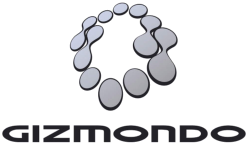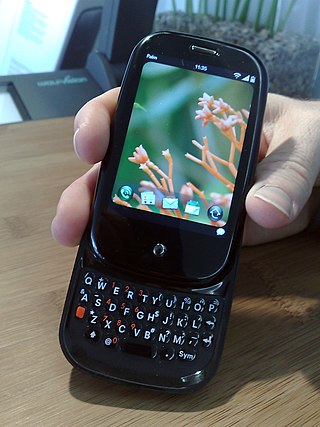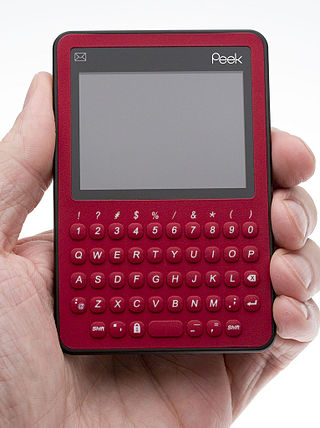Related Research Articles

Secure Digital, officially abbreviated as SD, is a proprietary, non-volatile, flash memory card format the SD Association (SDA) developed for use in portable devices.

Lenovo Group Limited, trading as Lenovo, is a Chinese, multinational technology company specializing in designing, manufacturing, and marketing consumer electronics, personal computers, software, business solutions, and related services. Products manufactured by the company include desktop computers, laptops, tablet computers, smartphones, workstations, servers, supercomputers, data storage devices, IT management software, and smart televisions. Its best-known brands include its ThinkPad business line of laptop computers, the IdeaPad, Yoga, LOQ, and Legion consumer lines of laptop computers, and the IdeaCentre, LOQ, Legion, and ThinkCentre lines of desktop computers. As of 2024, Lenovo is the world's largest personal computer vendor by unit sales.
Conexant Systems, Inc. was an American-based software developer and fabless semiconductor company that developed technology for voice and audio processing, imaging and modems. The company began as a division of Rockwell International, before being spun off as a public company. Conexant itself then spun off several business units, creating independent public companies which included Skyworks Solutions and Mindspeed Technologies.

The Gizmondo is a handheld gaming console developed by Tiger Telematics. It was released in the UK, Sweden and the U.S. starting in March 2005. Its first-party games were developed in studios in Helsingborg, Sweden, and Manchester, England. Gizmondo Europe, Ltd. was based in London, England, and was a subsidiary of Florida-based Tiger Telematics, whose chairman Carl Freer led Gizmondo's development.
Universal Flash Storage (UFS) is a flash storage specification for digital cameras, mobile phones and consumer electronic devices. It was designed to bring higher data transfer speed and increased reliability to flash memory storage, while reducing market confusion and removing the need for different adapters for different types of cards. The standard encompasses both packages permanently attached (embedded) within a device (eUFS), and removable UFS memory cards.

The Palm Pre, styled as palm prē, is a multitasking smartphone that was designed and marketed by Palm with a multi-touch screen and a sliding keyboard. The smartphone was the first to use Palm's Linux-based mobile operating system, webOS. The Pre functions as a camera phone and a portable media player, and has location and navigation capabilities. The Pre also serves as a personal information manager, has a number of communication and collaboration applications, and has Bluetooth and Wi-Fi connectivity built-in.

A smartbook was a class of mobile device that combined certain features of both a smartphone and netbook computer, produced between 2009 and 2010. Smartbooks were advertised with features such as always on, all-day battery life, 3G, or Wi-Fi connectivity and GPS in a laptop or tablet-style body with a screen size of 5 to 10 inches and a physical or soft touchscreen keyboard.
Pre-installed software is software already installed and licensed on a computer or smartphone bought from an original equipment manufacturer (OEM). The operating system is usually factory-installed, but because it is a general requirement, this term is used for additional software apart from the bare necessary amount, usually from other sources.

Peek Inc. was a mobile technology company founded in 2007 and headquartered in New York City. From 2008 to 2012, it offered a series of mobile handheld devices which gave access to email and various social networks.
Vuzix is an American multinational technology company headquartered in Rochester, New York and founded by Paul Travers in 1997. Vuzix is a supplier of wearable virtual reality and augmented reality display technology. Vuzix manufactures and sells computer display devices and software. Vuzix head-mounted displays are marketed towards mobile and immersive augmented reality applications, such as 3D gaming, manufacturing training, and military tactical equipment. On January 5, 2015, Intel acquired 30% of Vuzix's stock for $24.8 million.
Vivint Smart Home, Inc. is a United States-based smart home company. A subsidiary of NRG Energy, it was founded by Keith Nellesen and Todd Pedersen in 1999. Its products provide a unified access point to manage all smart home features.

Lenovo smartphones are marketed as the "LePhone" in Mainland China and the "IdeaPhone" overseas are smartphones desgined and manufactured by the Motorola Mobility, ZUK Mobile and Medion, divisions of Lenovo. On April 27, 2017, Lenovo announced that the ZUK brand would cease operations. In 2015, Lenovo subsumed its own smartphone division into the acquired Motorola brand.
Hexagon is the brand name for a family of digital signal processor (DSP) products by Qualcomm. Hexagon is also known as QDSP6, standing for “sixth generation digital signal processor.” According to Qualcomm, the Hexagon architecture is designed to deliver performance with low power over a variety of applications.

NNG, formerly known as Nav N Go is a company which provides navigation software for the automotive, enterprise, wireless and personal navigation industries. In 2016, NNG had nearly 1000 employees, 12 offices and 4 auxiliary offices on 6 continents. NNG's products are based on the iGO Navigation Engine, which consists of the navigation software, user interfaces, and related content and services, which it sells to device manufacturers, auto makers, network operators, and transport specialist companies.

Tango was an augmented reality computing platform, developed and authored by the Advanced Technology and Projects (ATAP), a skunkworks division of Google. It used computer vision to enable mobile devices, such as smartphones and tablets, to detect their position relative to the world around them without using GPS or other external signals. This allowed application developers to create user experiences that include indoor navigation, 3D mapping, physical space measurement, environmental recognition, augmented reality, and windows into a virtual world.

A modular smartphone is a smartphone designed for users to upgrade or replace components and modules without the need for resoldering or repair services. The most important component is the main board, to which others such as cameras and batteries are attached. Components can be obtained from open-source hardware stores.

The Nextbit Robin was an Android smartphone manufactured by Nextbit. The phone was marketed as "Cloud-first" where it utilized cloud storage to store data which wouldn't be used for a long period of time, thus saving space in the device's local storage.
iCE is the brand name used for a family of low-power field-programmable gate arrays (FPGAs) produced by Lattice Semiconductor. Parts in the family are marketed with the "world's smallest FPGA" tagline, and are intended for use in portable and battery-powered devices, where they would be used to offload tasks from the device's main processor or system on chip. By doing so, the main processor and its peripherals can enter a low-power state or be powered off entirely, potentially increasing battery life.

The Meizu PRO 5 Ubuntu Edition is a smartphone designed and produced by the Chinese manufacturer Meizu, which runs on Ubuntu Touch. It is an alternative version of the Meizu PRO 5. It was unveiled on February 17, 2016.

Typewise is a Swiss deep tech company that builds text prediction AI. In January 2022, the company filed a patent for its technology which it claims outperforms that of Google's and Apple's.
References
- ↑ Jason Mick (2015-01-07). "DailyTech - CES 2015: Saygus's "Super Smartphone" Offers 320 GB of Storage". www.dailytech.com. Archived from the original on 2015-05-27. Retrieved 2015-05-07.
- ↑ "Company Overview of Saygus, Inc". Blooomberg. 2015-05-11. Retrieved 2015-05-11.
- ↑ "United States vs. Chad Leon Sayers". United States Department of Justice. 2021-08-14. Retrieved 2021-08-14.
- ↑ "Saygus VPhone V1 hits the FCC, headed for Verizon next?".
- ↑ "News".
- ↑ "Saygus V2 review: Waterproof Saygus V2 has 21-megapixel camera and up to 256GB of expandable storage".
- ↑ "[Hands-On] Saygus V2 Pre-Orders Open Today — $549 if You Act Quick and Want the Most Intriguing Smartphone We Saw at CES". 29 January 2015.
- ↑ "Saygus V SQUARED".
- ↑ "Saygus pushes back V2 launch, opens Indiegogo campaign to fund fresh start with new features". 15 June 2015.
- ↑ "Utah smartphone company fails to deliver product over 2 years later".
- ↑ CeBIT (2015-01-11). "CeBIT - Saygus". CeBIT. Retrieved 2015-05-11.
- ↑ CeBIT (2015-01-11). "CeBIT - Saygus V² smartphone". CeBIT. Retrieved 2015-05-11.
- ↑ CES (2015-01-11). "CES - Saygus V² smartphone". CES. Archived from the original on 2015-05-18. Retrieved 2015-05-11.
- ↑ MWC (2015-01-11). "MWC - Saygus". MWC. Archived from the original on 2015-05-18. Retrieved 2015-05-11.
- ↑ "Saygus uploads a bunch of new videos, giving us a look inside and out of the V2". phonearena. 2015-06-23. Retrieved 2015-06-13.